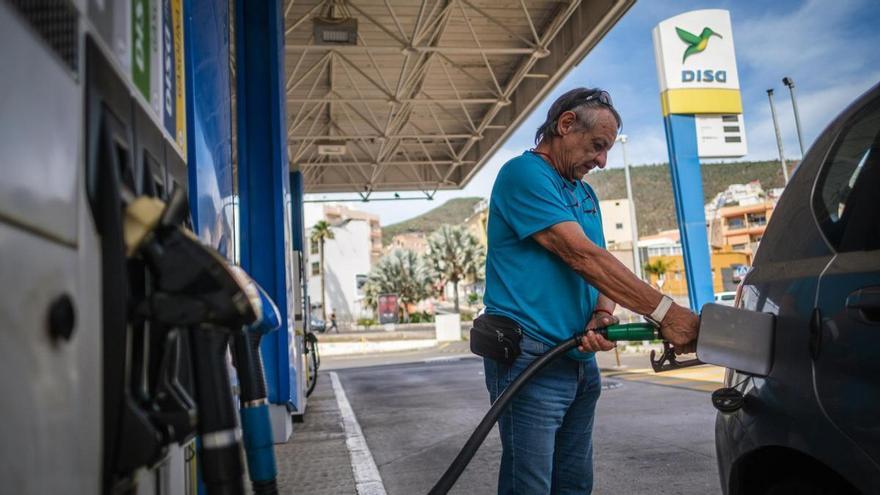Tenerife’s New Forest Tax Comes into Effect
Starting tomorrow, a new environmental levy on fuel, known as the “forest cent,” takes effect in Tenerife. The island’s governing council, the Cabildo, is set to reject all individual and collective appeals against this tax, which adds one euro cent per litre to the cost of petrol and diesel. The measure is projected to raise approximately ten million euros annually, with all funds earmarked for environmental protection projects across the island.
Political Opposition and Accusations
The local PSOE (Socialist Party) is staunchly opposed to what they value as “a tax hike on all Tenerife residents” every time they fill up their vehicles. The socialists reject the decision by the Cabildo, which is governed by a coalition of Coalición Canaria (CC) and the Partido Popular (PP), to implement a measure from tomorrow that “ignores even municipalities from their own PP,” such as Santiago del Teide. The PSOE spokesperson on the Cabildo, Aarón Afonso, pointed out that the president, Rosa Dávila, “promised during her campaign to lower taxes, specifically to reduce the IGIC (Canary Islands General Indirect Tax) from 7% to 5%, and she hasn’t done it.” Instead, he argues, she is imposing a new fuel surcharge on the people of Tenerife “instead of a tourist ecotax” as proposed by the PSOE “to improve public services and protect the territory.”
A Tax on Daily Life
Aarón Afonso emphasized that, far from reducing the tax burden, CC and PP have chosen to increase taxes for those who are already most affected by the high cost of living in Tenerife. Specifically, he stated, “They are going to pay for that car they have to use to go to work, to go shopping, or to attend a medical appointment.” The PSOE considers this decision evidence of the PP’s “submission” to the priorities of Coalición Canaria, “even against the criteria of their own mayors.” Afonso believes the measure “places the Cabildo on the path of unfair taxes, punishing families, the self-employed, and workers while rejecting progressive fiscal measures like the ecotax.”
Widespread Appeals and Socialist Rejection
Alongside Santiago del Teide and individual citizens, appeals against the tax were also filed by the majority of municipalities governed by the PSOE. Some, like La Matanza de Acentejo, submitted their claims after the deadline. The socialists had already staged their rejection of the forest cent back in September. Mayors, municipal spokespeople, Cabildo councillors, and members of the Insular Executive signed a joint declaration against this per-litre fuel surcharge, calling it “a regressive and unfair measure.” They urge CC and PP to apply “a fair and progressive ecological taxation based on improving public transport, supporting workers, the self-employed, young people, transporters, and the primary sector, as well as the implementation of a tourist ecotax that charges non-resident visitors.”
The Government’s Rationale and Expert Backing
Tenerife approved the forest cent “to protect its nature,” according to the governing group’s argument. This is an environmental fee of one euro cent per litre of fuel with a specific, ring-fenced purpose. The island’s Director of Finance, Juan Carlos Pérez Frías, previously assured on social media that “the forest tariff will not affect professional transport or goods distribution, will be exempt for essential sectors, and will in no case lead to an increase in the price of goods and services in the shopping basket.” The fee was proposed by a committee of 17 independent experts from the Canary Council on Climate Change. Therefore, it “does not arise from an improvised political decision, but from the technical work of professionals specialized in sustainability, biodiversity, forest management, and the environment.”
Scope and Implementation Details
The forest cent will be applied in Tenerife and Gran Canaria, the most populated islands with the largest number of vehicles. The island’s Governing Council approved the implementation of the so-called forest cent on July 2nd, a measure ratified by the full Cabildo on July 31st, with votes against from the PSOE, abstention from Vox, and votes in favour from CC and PP. According to the island government’s definition, it is “a special tariff of up to 0.02 euros (ultimately, one cent) per litre of petrol and automotive diesel, destined exclusively to finance priority environmental actions.” These interventions will take place across the nearly one thousand square kilometres of protected natural spaces, which account for 48% of the island’s total surface area.
Funding for Nature and Parallels with Gran Canaria
The forest cent is part of the regulations approved by the Canary Islands Government in the 2025 Budget Law. The initial collection in Tenerife will coincide with the last two months of the year. Sources from the island institution also note that it has been approved in the Cabildo of Gran Canaria, where the PSOE governs with Nueva Canarias. There, the revenue, estimated at “just under five million euros,” will be used for “reforestation and actions in the Teide National Park.” The fixed tariff in Tenerife is calculated to translate into ten million euros per year for the island’s environmental projects.

